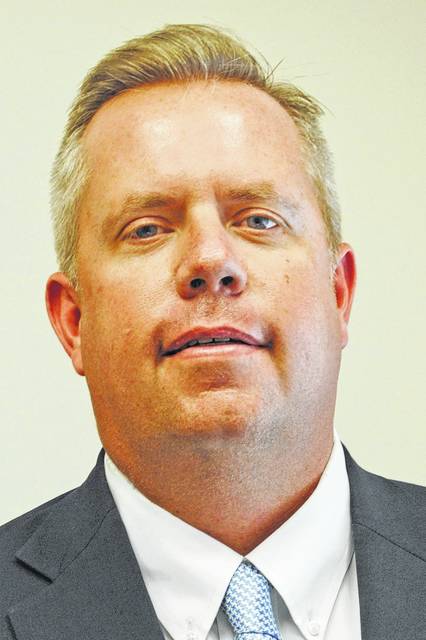
The city of Hillsboro on Wednesday denied a public records request by The Times-Gazette for an audio recording made of a city council executive session in December of last year.
The newspaper made the request on Monday in a document that outlined several arguments as to why the recording should be public, even though the meeting in question was a private executive session outside the public’s view.
The denial of the request came in the form of an email from Eric Daniels, the city’s custodian of records, quoting Lee Koogler, the council president, saying, “I concur with Mr. Beery’s assessment that the executive session in December that was recorded is a privileged communication protected by attorney client privilege, not subject to public disclosure.”
Fred Beery, the city law director referenced in Koogler’s response, said Wednesday he was not allowed to comment, even to confirm or deny the “assessment” mentioned by Koogler.
Koogler has acknowledged making an audio recording of the Dec. 2, 2016 executive session. The purpose of the session was listed as discussion of a “personnel issue,” and it came in the midst of a debate about Beery’s decision to order that the salary of former safety and service director Todd Wilkin continue to be paid, even though Wilkin had been fired by mayor Drew Hastings about two weeks earlier.
Hastings strenuously objected to Beery’s order. Eventually, in mid-January of this year, Beery ordered the payments to cease, issuing an email saying that the decision to end the payments was based on advice from special counsel for the city.
Late last month, the city and Wilkin agreed to a settlement of a challenge filed by Wilkin to his dismissal, with the city’s insurance company agreeing to pay Wilkin $82,500.
Gary Abernathy, publisher and editor of The Times-Gazette, said Wednesday he was disappointed in the city’s response.
“I understand that it’s unusual to request a document that would describe a discussion held in executive session,” he said. “But in this case, for various reasons outlined in our request, I think this qualifies as an exception based on the benefit to the public versus any harm to the city.”
Abernathy addressed the matter in a column that appeared in Wednesday’s edition of the newspaper.
Abernathy said Wednesday that among the issues leading to the public records request was the unusual decision to make an audio recording of the session, the decision to override the mayor’s directive in regard to continuing to pay the former safety director, the fact that Beery had provided legal counsel to both Wilkin and to the city despite the possibility of an adversarial relationship, and the question of whether decisions were made by city council behind closed doors that should have been made in public session.
In the request for the audio recording, Abernathy quoted a passage from the Ohio Sunshine Laws 2017 manual issued by the Ohio attorney general, which states that “in enumerating very narrow, specific exceptions to the public records statute, the General Assembly has already weighed and balanced the competing public policy considerations between the public’s right to know how its state agencies make decisions and the potential harm, inconvenience or burden imposed on the agency by disclosure.”
“Reasonable people can disagree on this subject, but I believe that in this case the public’s right to know how decisions were made outweighs any harm to the city when it comes to the release of the audio recording,” said Abernathy.
He said he is considering additional steps that are available to appeal the refusal by a government agency to provide records.


